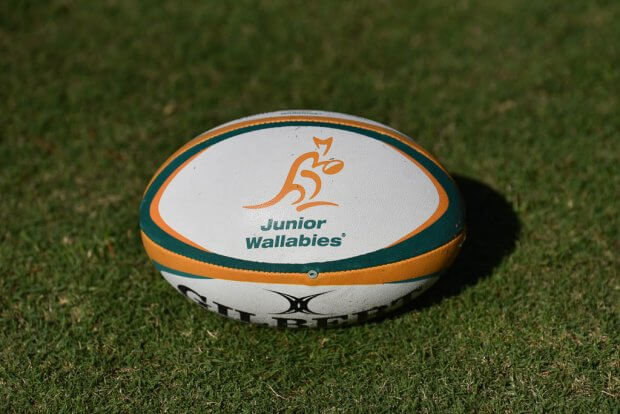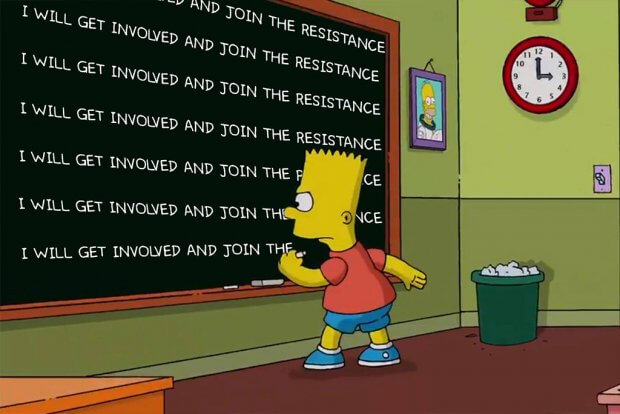Thanks to a new contributor, ‘Newtta’, for their contribution for today’s G&GR News. The author prefers to keep his identify as mysterious as Richie McCaw’s ability to influence referees. In any case, welcome, friend! Enjoy Newtta’s News, folks!

Junior Wallabies Beat NZ in U20 World Championship
See former G&GRian, Nathan Williamson’s, article for more here.
The Kiwis spent the majority of the game with 14 men after a red card to Tom Allen in the 13th minute for a dangerous cleanout. Despite this, the Aussies didn’t have it all their own way as New Zealand defied the odds to take a 12 point lead just after the break. Winger Tim Ryan came up with a crucial second half double to put Nathan Grey’s side in front before captain Teddy Wilson sealed the win. The result means Australia will play Wales for 5th spot, and NZ plays Georgia for 7th.
In other matches, Ireland and France won their semi-finals and will meet in the final, and Italy will play Japan to see who is relegated in next year’s U20 World Trophy.
For those wishing to see how the competition has unfolded so far, the Wikipedia page has a summary here.

Stuart Hogg Announces Immediate Retirement
Scotland’s record try scorer, Stuart Hogg, announced his retirement from rugby with immediate effect on Sunday, saying his body couldn’t take the strain any more. Hogg has scored 27 tries for Scotland and had said in March that he would retire after this year’s World Cup, which runs from 8 September to 28 October.

Choosday Choo – Government in Sport
We’ve recently seen three teams go under in the English Rugby Premiership, but one interesting aspect of it is that the UK government has appointed advisors to the RFU and Premiership. Why would the UK Government, currently controlled by the party of small government and Margaret there-is-no-such-thing-as-society Thatcher start getting involved in sport administration, ostensibly for the good of society?
They have recently stated that they see a need to regulate English soccer, and it’s worth quoting a few bits of the white paper that summarises their position. The Regulator’s primary strategic purpose will be to ensure that English football is sustainable and resilient, for the benefit of fans and the local communities football clubs serve.
Some thoughts to consider:
The unique fan dynamic and social impacts mean the market will not freely rectify its problems.
Oversight by the industry’s existing bodies has been inadequate so far, and self-regulation cannot be trusted to deliver the reform required.
Since football clubs do not behave like typical businesses nor fans like typical consumers, football does not function like a typical market. So a large proportion of the value of clubs to their fans and communities is not properly captured in the market.
Like the G&GR community, sport creates social capital – it helps make connections between people, formation of groups of friends, provides shared experiences, and a sense of belonging. If the UK Conservative Party can see social value in it and admits that a free market fails to maximise this social value, then perhaps they have a case.
What are the free market failures? Fans pay to see their team challenged but hopefully win often and become champions. Unlike a factory or shop, provision of the product is not within the control of the entity from which fans seek their value. Teams need to cooperate to produce anything of value at all. But direct zero-sum competition (one team’s win is another team’s loss) is also an essential element and there is an incentive for teams to monopolise player bases, outspend, and even exclude and ruin most other teams by ring fencing comps. Financial incentives for the decision-making entities are not aligned with maximising a sport’s potential for providing value to the communities in which they exist.
We see tension in Australian rugby between levels – lower levels not aligned with higher levels, higher levels maybe not paying attention to or supporting adequately lower levels ability to contribute to the port. Many complained about NSW and the Shute Shield clubs not getting behind the NRC, but is it surprising if administrators of lower-level teams and leagues act in the interest of those lower levels sometimes at the expense of higher levels? They have a legal obligation to act this way.
French rugby is regulated, and it has the most successful rugby competition in the world. The Top 14 and Pro D2 are two divisions that are both administered by one body (LNR – Ligue Nationale de Rugby), which negotiates TV rights for both divisions. 1/3rd of the rights goes to Pro D2 teams, and some periods of the week are reserved for Pro D2 matches. The French government requires reasonable promotion/relegation provisions, and reasonable space in the schedule for the second division to attract attention. There is no prospect of the top clubs forcing the lower clubs to be starved of funds or excluded.
One Australian precedent of government regulation of sport was the rule implemented by the Victorian government until the early 1980s that prevented the VFL from playing on Sundays and the VFA from playing on Saturdays. This gave two leagues space in which to co-exist, and these two leagues could each address parts of the community and market that a single league could not. This rule was part of the reason Aussie Rules became as popular as it did in Victoria in the post WW2 period. No active regulator or bureaucracy was required to police this rule. Each league just abided by it.
Is the Rugby Australia board meant to be maximising community engagement? Are they? Do they have the power, or are they nobbled by some parts of their own organisation? Could government legislation or a government organisation do something useful that governing bodies working as companies or not for profits cannot?

